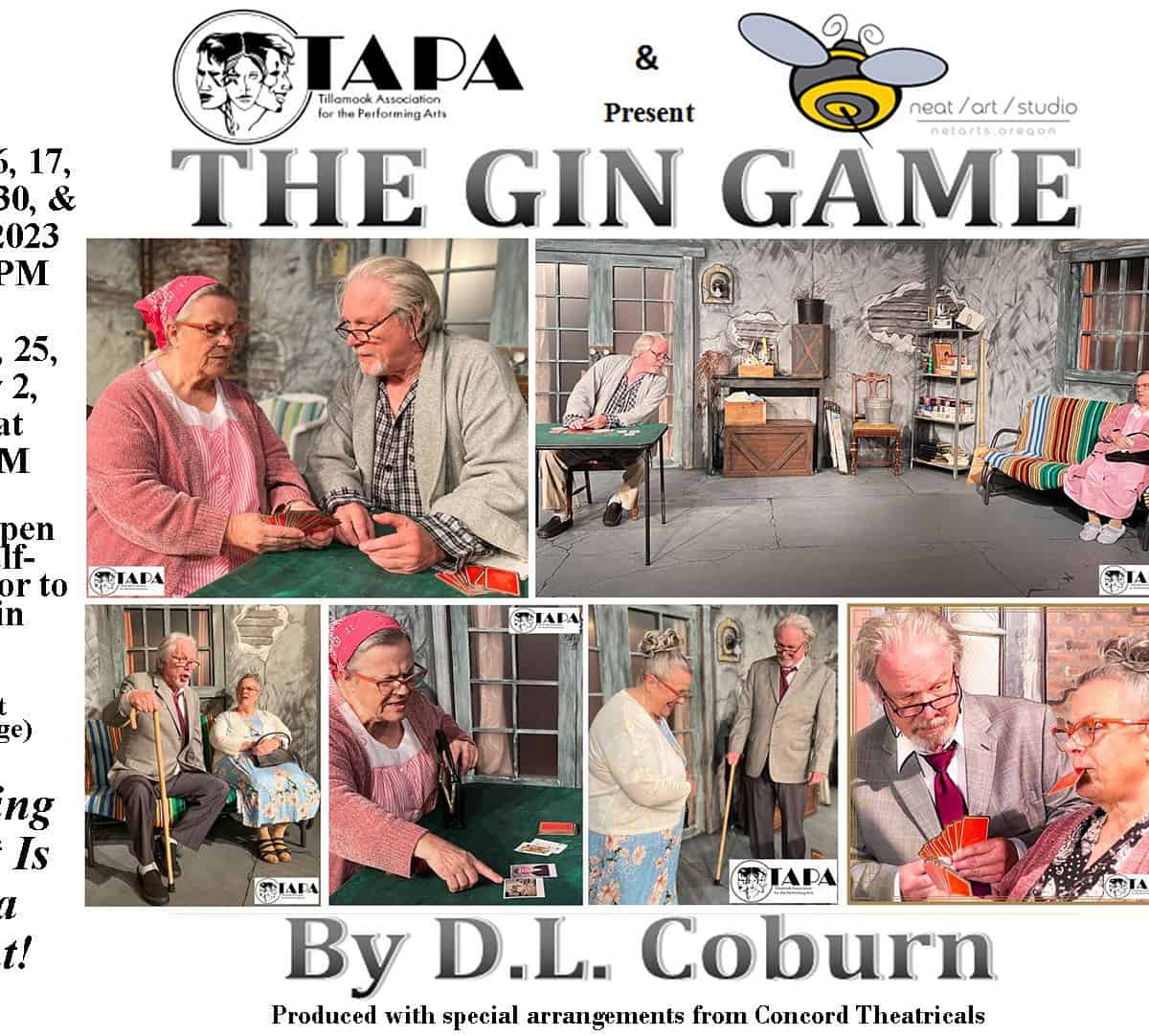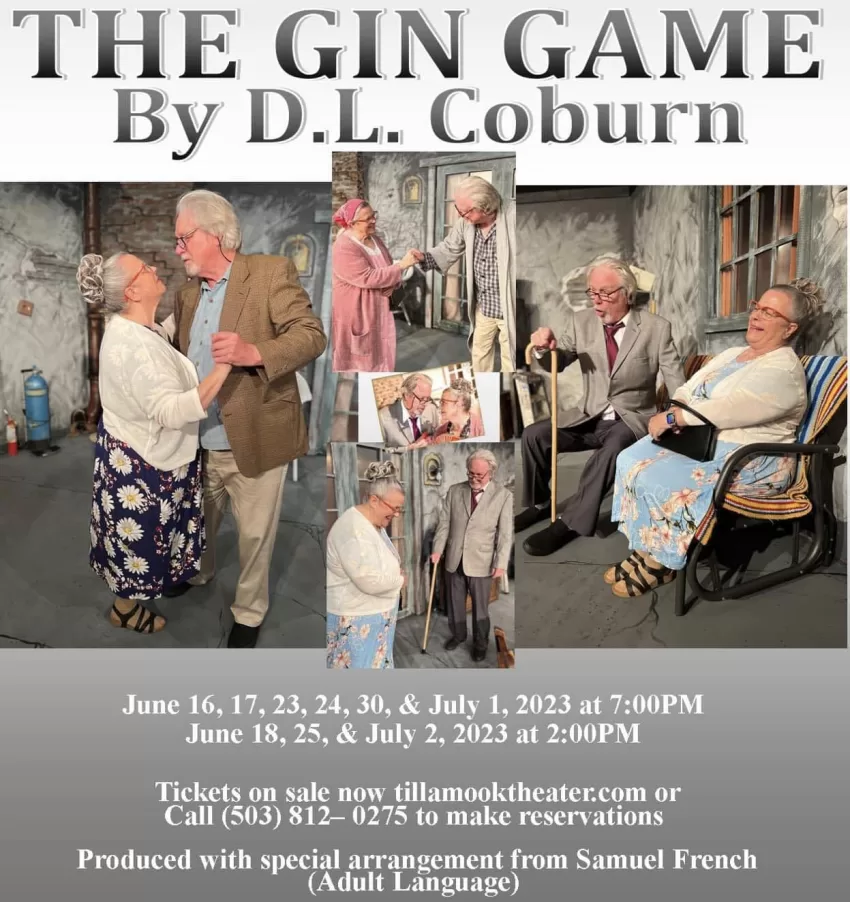By Michael Randall
A new production of Donald Coburn’s play, “The Gin Game,” has opened at the Tillamook Association for the Performing Arts (TAPA) in the Barn Community Playhouse. Coburn wrote the play in 1976 and it won him the Pulitzer Prize for Drama in 1978. The TAPA production stars stage actors Doral Vance and Rodney Dahl, who both live here on the coast. This powerful play is directed by veteran TAPA director Robert Buckingham.
The play’s power as a tragi-comedy lies not in its plot, but in the unfolding relationship between elderly Weller Martin and Fonsia Dorsey, two residents of a rundown nursing home. Neither of them ever has visits from family members or friends, but on the nursing home’s sun porch they gravitate toward each other for companionship.
The lonely Weller offers to teach Fonsia to play Gin, and she accepts. Weller feels himself to be quite an expert Gin player, and the card games begin innocently, with friendly chit-chat back and forth. When Fonsia wins the first round, Weller is surprised, but concedes generously though condescendingly. However, Fonsia goes on to win every round, and he becomes increasingly frustrated, then quietly furious. Finally, he explodes into frightening rages that are out of proportion to the importance of these simple card games.
His continuing losses slowly illuminate the pent-up frustrations of his life. His repeated claims of “bad luck” while playing Gin with Fonsia gradually disclose his deep anger toward his family, the nursing home staff, and his business partners who forced him out. When Fonsia finally has had enough, she says, “You have to be the victim of bad luck, don’t you, Weller? Because if it wasn’t bad luck, it’d have to be something else, wouldn’t it?” We see him through his demeanor, cynically patronizing her, and increasingly displaying an unstable anger that edges toward violence.
Fonsia is not the sweet soul she initially seemed to be. Gradually, she betrays that she is as self-destructive as Weller. She cast out, then divorced her husband, disowned her son and grandchildren, and for whatever reason has not seen her sister in many years. She no longer allows any of them in her life. She claims to have been “very unlucky” with men.
Weller snarls, “It had to be bad luck, because if it wasn’t bad luck, it would’ve had to been the fact that it was you!” But the reality is that neither of these people seem to ever have acted kindly or generously, or taken a long look into a mirror. Neither of them seems to have taken responsibility for their lives’ bad decisions or cruel behaviors. Both believe that poor luck or other people are the causes of their lives’ problems.
Above, I mentioned that the play is a tragi-comedy, and in the early portions there is repeated laughter from the audience at Weller’s flummoxed reactions to losing each card game. But as the play progresses, humor drains away, and the weight of the play’s themes of self-deception and self-destruction take over.
By the end, what started out as Weller’s and Fonsia’s light-hearted reaching out to each other, has transformed into each one’s unconscious confession of hopelessness, despair, and self-ruin. Their angry displays of rage show them to be incapable of recognizing what they have done to themselves, and who they each have become.
We can only feel compassion for them, then turn away in embarrassment–and perhaps go home and look into our own mirrors.
“The Gin Game” runs Friday and Saturday evenings at 7:00, with matinees at 2:00 each Sunday, through July 2 at TAPA’s red barn playhouse. Tickets, questions or other assistance at (503) 812-0275, or go to www.tillamooktheater.com



